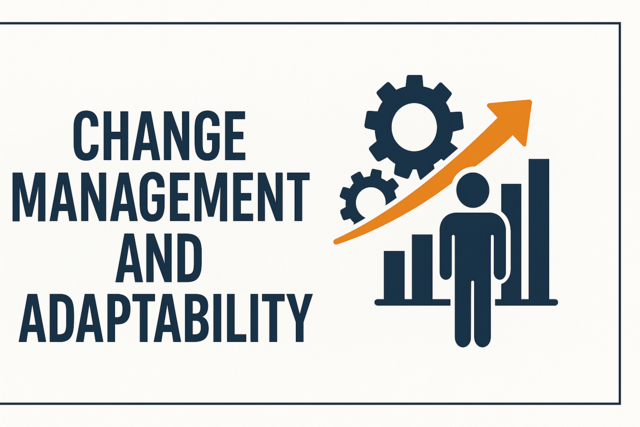Online Class: Introduction to Data Analytics

no certificate
with CEU Certificate*
-
15Lessons
-
22Exams &
Assignments -
6Hours
average time -
0.6CEUs
Course Description
The world is changing at an unprecedented pace, and the foundation upon which these changes rest is data. Data is not just a collection of numbers and facts; it is the pulse of our digital era, a transformative force that enables innovation, fuels decision-making, and powers future breakthroughs. Welcome to "Introduction to Data Analytics," the course that positions you to harness the power of data, elevating your career and impacting the world. Here, you don't just learn data analytics; you become an analytics pioneer.
From the moment you embark on this journey, you'll dive into a sea of data diversity—from the structured grids of spreadsheets to the raw waves of tweets. You'll explore the intriguing diversity of data types, understanding how they serve as the building blocks of modern businesses and dynamic innovations. Each step of the way, you will gain insights into the art of transforming these disparate forms of data into coherent, compelling narratives that drive strategic decisions.
Consider this course as your personal guide through the rich landscape of qualitative and quantitative data. Imagine the ability to see beyond the numbers, recognizing patterns and stories previously hidden, and using these insights to inspire change and innovation within your organization. With each lesson, you peel back layers of complexity, revealing the essence of data's power and application. But more than understanding data, you'll learn to leverage cutting-edge AI and machine learning tools, empowering you to convert raw possibilities into actionable strategies that could redefine industries.
As you navigate this course, you'll encounter real-world applications of data standardization and normalization, fundamental processes that refine chaotic data into clarity and accuracy. These lessons will furnish you with techniques to ensure the precision and reliability of data-driven insights, making your analyses not just informative, but transformative. You'll emerge not just as a learner of data analytics, but as a trusted guide and strategic advisor capable of informed decision-making.
With "Introduction to Data Analytics," you'll embark on an exploration of essential Exploratory Data Analysis (EDA). Picture yourself in the moment where complex datasets become accessible visual stories, enabling innovation and strategic advancement across a multitude of fields—from marketing to healthcare. This course isn't just about acquiring skills; it's about becoming a capable storyteller, weaving data into narratives that persuade, engage, and spark change.
Our journey delves deep, confronting challenges and opportunities like those found in industries reliant on predictive analytics. Imagine equipping yourself with the arsenal of tools necessary to predict market trends, optimize business strategies, and drive economic growth—all with the ability to apply these concepts to communities and sectors worldwide. From decoding the complexities of financial data to contributing to healthcare optimization, you will be at the forefront of analytical innovation.
Machine learning, a highlight of this course, will invite you into a realm where data interacts seamlessly with intelligent algorithms, opening doors to endless possibilities. Here, you'll master methodologies that fine-tune predictive models, preparing you for a future where your data-driven insights can lead to tangible advancements in technology and business practices.
Amidst mastering these technical skills, you'll also explore the ethical landscapes that today's data analysts must navigate. You gain an understanding of managing transparency and trust through ethical data management. Be ready to shoulder the responsibility of maintaining privacy and data integrity and become an ethical guardian of a data-driven future.
"Introduction to Data Analytics" is not just a course; it's an invitation to transform your professional journey. The insights and skills you gain will transcend beyond baselines, making analytics your second language, a language spoken fluently across industries and borders. You're not just investing in education; you're stepping into a community of pioneers dedicated to shaping a world where data drives vibrant solutions and strategies.
Seize this unparalleled opportunity to unlock your potential and reshape your world through the mastery of data analytics. Enroll now and watch as your investment today evolves into the expertise and confidence needed to fuel tomorrow's innovations. Join us, and become part of a narrative where you are the author of a transformative future, guided by data, driven by you.
- Completely Online
- Self-Paced
- 6 Months to Complete
- 24/7 Availability
- Start Anytime
- PC & Mac Compatible
- Android & iOS Friendly
- Accredited CEUs

Course Lessons
Lesson 1. Mastering Data Diversity: From Tables to Tweets
Understanding data diversity—structured, semi-structured, and unstructured—is crucial as businesses seek comprehensive analytics approaches, leveraging tools like Python and R for specialized tasks. As analytics permeates various fields, new technologies and tools enhance decision-making, transforming raw data into meaningful narratives and outcomes.Lesson 2. Understanding and Harnessing Diverse Data Types for Strategic Insights
The rich realm of data analytics necessitates understanding the distinctions between qualitative and quantitative data for effective analysis and decision-making. Harnessing AI and machine learning technology empowers professionals to creatively utilize structured and unstructured data, transforming insights into strategic innovations and elevating organizational success.Lesson 3. Qualitative vs. Quantitative Data: Key Differences and Applications
Qualitative data, often split into nominal and ordinal, captures non-numeric characteristics like types of fruits or customer satisfaction levels. Quantitative data, seen in discrete or continuous forms, measures numerically, enabling mathematical analysis like counting students or tracking temperature.Lesson 4. Data Standardization and Normalization: Transforming Chaos into Clarity
In data analytics, identifying data quality issues is crucial for accurate insights, as poor quality like inaccuracy or incompleteness leads to misleading conclusions. Strategies such as data audits, validation, and addressing duplicates ensure data reliability, supporting effective decision-making across various fields.Lesson 5. Essential EDA: Understanding Your Data
The evolution of EDA is marked by the advent of automation and real-time analytics, challenging analysts to maintain ethical standards while ensuring accurate, timely data interpretation. As a linchpin in diverse sectors, from healthcare to technology, EDA empowers individuals and organizations to transform raw data into actionable insights, shaping a future defined by informed, strategic decision-making.Lesson 6. Understanding Qualitative and Quantitative Data in Analytics
The application of descriptive statistics transforms raw data, using measures like mean, median, and mode to reveal key trends and insights. Through visual tools and advanced techniques, data become stories that feed innovation and strategy across industries such as marketing and healthcare.Lesson 7. Patterns of Insight: Exploring Data Mining Across Industries
By incorporating global storytelling traditions into education, learners gain insight into various societal challenges and historical events, fostering critical thinking and cross-cultural understanding. This storytelling approach invites students to reflect on their own cultural assumptions, developing empathy and cultural literacy essential in a globalized world.Lesson 8. Revolutionizing Healthcare with Predictive Analytics
In finance, predictive analytics enhances market forecasting and credit assessments by analyzing global economic indicators, historical data, and consumer behaviors. This detailed scrutiny not only boosts financial returns but also democratizes credit access, promoting fairer evaluations.Lesson 9. Mastering the Core Concepts of Machine Learning: A Comprehensive Exploration
Machine learning, a cornerstone of data analytics, enables autonomous data-driven decision-making by detecting patterns and predicting outcomes with minimal human input. Understanding learning methodologies and key concepts like overfitting and underfitting is essential for creating robust predictive models that generalize well across innovative applications.Lesson 10. The '3 Vs' of Big Data: A Comprehensive Guide
Exploring the intersection of rhythm and pattern in both music and mathematics ignites creative and logical thinking, turning abstract concepts into tangible experiences. This approach transcends traditional education boundaries, enriching students' understanding by linking music, visual arts, and math through a shared foundation of symmetry and sequences.Lesson 11. Data Tidying with Python: Pandas and NumPy Basics
Through compelling visualization tools like Matplotlib and Seaborn, complex datasets are translated into insightful graphics, revealing underlying narratives and correlations. These libraries empower sectors to communicate data comprehensively, whether showcasing marketing trends or patient recovery statistics, enriching the storytelling aspect of data analytics.Lesson 12. Transparency and Trust: The Cornerstones of Ethical Data Management
Integrating ethical considerations into data analytics is vital for safeguarding user privacy and maintaining public trust in a data-driven world. This involves data analysts navigating complex moral landscapes to ensure accountability and transparency in data handling.Lesson 13. Harnessing the Power of Data-Driven Decision Making
In Agile, the Product Backlog is a dynamic entity prioritizing development according to market demands, much like a librarian organizing books by popularity. This approach ensures efficient use of resources, fostering transparency and strategic alignment among all stakeholders.Lesson 14. Statistical Measures of Potential Financial Loss: Understanding VaR and CVaR
Data visualization transforms healthcare analytics into actionable insights, allowing rapid intervention to improve patient care. Ethical data management ensures patient privacy and fosters trust, as seen in resource optimization during peak healthcare demand periods like flu seasons.Lesson 15. Data Decentralization: Real-World Applications of Edge Analytics
The synergy between IoT and edge analytics offers transformative solutions for real-time processing, notably in sectors like autonomous driving and smart homes, by optimizing resource efficiency and safety. Addressing challenges such as data quality and ethical standards is crucial for maximizing these technologies’ potential while ensuring accountability and inclusivity.
Learning Outcomes
- Demonstrate proficiency in using data analytics tools such as Python, R, Apache Hadoop, and Tableau by completing a series of data analysis tasks and visualizations.
- Identify the differences between structured, semi-structured, and unstructured data by analyzing real-world examples in order to select appropriate storage solutions and processing frameworks.
- Demonstrate the ability to distinguish between qualitative and quantitative data by providing examples of each from a given dataset.
- Identify and categorize data as structured or unstructured in a real-world scenario, using examples to illustrate the differences in analytical approaches.
- Demonstrate the ability to differentiate between qualitative and quantitative data by categorizing given datasets within a specified timeframe.
- Identify and describe appropriate data visualization techniques for both qualitative and quantitative data to effectively communicate findings from a given analysis.
- Demonstrate the use of methods to handle missing data, including deletion and imputation techniques, by applying them to a given dataset scenario.
- Identify and describe the four key dimensions of data quality: accuracy, completeness, reliability, and timeliness, using practical examples.
- Demonstrate the application of data transformation techniques, such as normalization and standardization, to ensure consistency in datasets across various fields.
- Describe how exploratory data analysis techniques are used to identify patterns, spot anomalies, and formulate hypotheses in diverse datasets.
- Analyze a given dataset using descriptive statistics, summarizing key insights through measures such as mean, median, and standard deviation, supported by relevant visualizations.
- Define and distinguish between qualitative and quantitative data by providing at least three real-world examples of each type.
- Recognize and explain patterns in large datasets using data mining techniques like association rule mining, classification, prediction, and clustering to improve strategic decision-making.
- Demonstrate mastery of lesson content at levels of 70% or higher.
Additional Course Information

- Document Your Lifelong Learning Achievements
- Earn an Official Certificate Documenting Course Hours and CEUs
- Verify Your Certificate with a Unique Serial Number Online
- View and Share Your Certificate Online or Download/Print as PDF
- Display Your Certificate on Your Resume and Promote Your Achievements Using Social Media

Choose Your Subscription Plan
No Certificate / No CEUs
This course only
| Includes certificate | X |
| Includes CEUs | X |
| Self-paced |

|
| Instructor support |

|
| Time to complete | 6 months |
| No. of courses | 1 course |
Certificate & CEUs
This course only
| Includes certificate |

|
| Includes CEUs |

|
| Self-paced |

|
| Instructor support |

|
| Time to complete | 6 months |
| No. of courses | 1 course |
Certificates & CEUs
Includes all 600+ courses
| Includes certificate |

|
| Includes CEUs |

|
| Self-paced |

|
| Instructor support |

|
| Time to complete | 12 Months |
| No. of courses | 600+ |
Certificates & CEUs
Includes all 600+ courses
| Includes certificate |

|
| Includes CEUs |

|
| Self-paced |

|
| Instructor support |

|
| Time to complete | 24 Months |
| No. of courses | 600+ |
Related Courses
-
 7 hours
0.7 CEUs
Healthy Lifestyle and Fitness Habits
+ More Info
7 hours
0.7 CEUs
Healthy Lifestyle and Fitness Habits
+ More Info
-
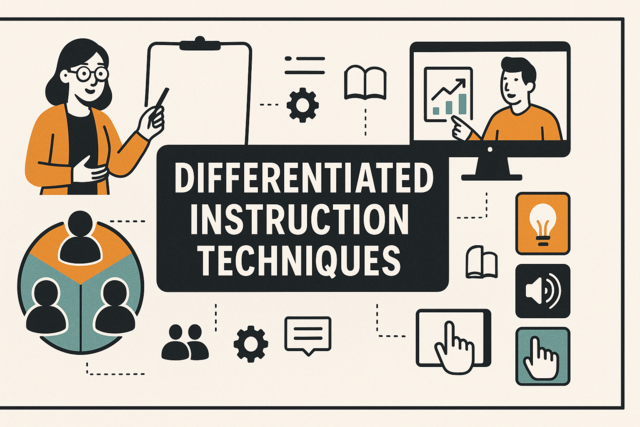 6 hours
0.6 CEUs
Differentiated Instruction Techniques
+ More Info
6 hours
0.6 CEUs
Differentiated Instruction Techniques
+ More Info
-
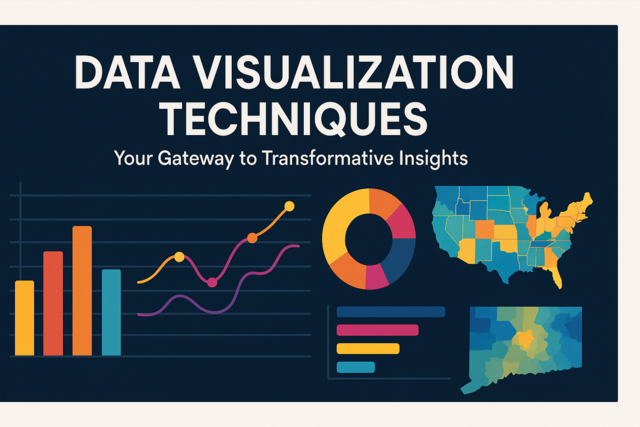 5 hours
0.5 CEUs
Data Visualization Techniques
+ More Info
5 hours
0.5 CEUs
Data Visualization Techniques
+ More Info
-
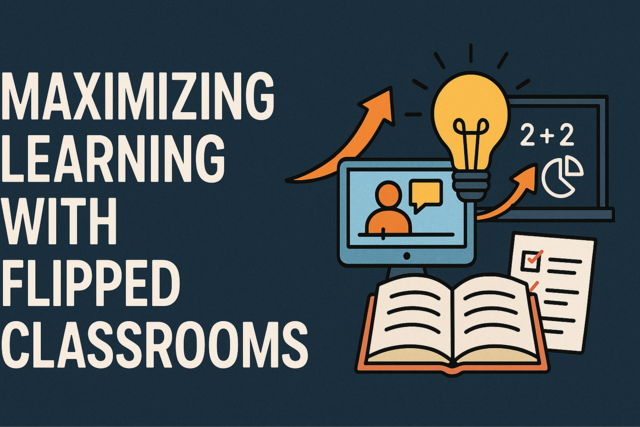 5 hours
0.5 CEUs
Maximizing Learning with Flipped Classrooms
+ More Info
5 hours
0.5 CEUs
Maximizing Learning with Flipped Classrooms
+ More Info
-
 6 hours
0.6 CEUs
Holistic Nutrition: Fueling Your Body and Mind
+ More Info
6 hours
0.6 CEUs
Holistic Nutrition: Fueling Your Body and Mind
+ More Info
-
 5 hours
0.5 CEUs
Iconic Inspirations: Modern Fashion's Heritage and Future
+ More Info
5 hours
0.5 CEUs
Iconic Inspirations: Modern Fashion's Heritage and Future
+ More Info
-
 5 hours
0.5 CEUs
Family Futures: Creating Lasting Legacies
+ More Info
5 hours
0.5 CEUs
Family Futures: Creating Lasting Legacies
+ More Info
-
 6 hours
0.6 CEUs
Creating Learner-Centered Classrooms
+ More Info
6 hours
0.6 CEUs
Creating Learner-Centered Classrooms
+ More Info
-
 6 hours
0.6 CEUs
The Friendship Formula: Building Trust in Personal Networks
+ More Info
6 hours
0.6 CEUs
The Friendship Formula: Building Trust in Personal Networks
+ More Info
-
 6 hours
0.6 CEUs
Cryptids: Creatures of Folklore and Reality
+ More Info
6 hours
0.6 CEUs
Cryptids: Creatures of Folklore and Reality
+ More Info
-
 3 hours
0.3 CEUs
Empowering Students through Self-Assessment
+ More Info
3 hours
0.3 CEUs
Empowering Students through Self-Assessment
+ More Info
-
 5 hours
0.5 CEUs
Setting and Maintaining Personal Priorities
+ More Info
5 hours
0.5 CEUs
Setting and Maintaining Personal Priorities
+ More Info
-
 6 hours
0.6 CEUs
Numerology and Life Path Analysis
+ More Info
6 hours
0.6 CEUs
Numerology and Life Path Analysis
+ More Info
-
 5 hours
0.5 CEUs
The Alchemical Traditions of Druidic Wisdom
+ More Info
5 hours
0.5 CEUs
The Alchemical Traditions of Druidic Wisdom
+ More Info
-
 7 hours
0.7 CEUs
Behavior Management Techniques for Special Educators
+ More Info
7 hours
0.7 CEUs
Behavior Management Techniques for Special Educators
+ More Info
-
 5 hours
0.5 CEUs
Dress Like a Mogul: Navigating High-End Fashion for Men
+ More Info
5 hours
0.5 CEUs
Dress Like a Mogul: Navigating High-End Fashion for Men
+ More Info
-
 4 hours
0.4 CEUs
The Use of Analytics in Education
+ More Info
4 hours
0.4 CEUs
The Use of Analytics in Education
+ More Info
-
 7 hours
0.7 CEUs
Cultural Perspectives on Trauma: Understanding Global Variations
+ More Info
7 hours
0.7 CEUs
Cultural Perspectives on Trauma: Understanding Global Variations
+ More Info
-
 6 hours
0.6 CEUs
Phenomena of the Mind: Examining Telepathy and Psychic Abilities
+ More Info
6 hours
0.6 CEUs
Phenomena of the Mind: Examining Telepathy and Psychic Abilities
+ More Info
-
 5 hours
0.5 CEUs
Coaching and Mentoring Skills
+ More Info
5 hours
0.5 CEUs
Coaching and Mentoring Skills
+ More Info
-
 6 hours
0.6 CEUs
Professional Learning Communities Development
+ More Info
6 hours
0.6 CEUs
Professional Learning Communities Development
+ More Info
-
 3 hours
0.3 CEUs
Agile and Scrum Fundamentals
+ More Info
3 hours
0.3 CEUs
Agile and Scrum Fundamentals
+ More Info
-
 7 hours
0.7 CEUs
Research Frontiers: Contemporary Studies in Trauma and Recovery
+ More Info
7 hours
0.7 CEUs
Research Frontiers: Contemporary Studies in Trauma and Recovery
+ More Info
-
 3 hours
0.3 CEUs
Understanding and Supporting Students with Down Syndrome
+ More Info
3 hours
0.3 CEUs
Understanding and Supporting Students with Down Syndrome
+ More Info
-
 3 hours
0.3 CEUs
The Fourth Dimension: Theories and Consequences
+ More Info
3 hours
0.3 CEUs
The Fourth Dimension: Theories and Consequences
+ More Info
-
 7 hours
0.7 CEUs
Healthy Sleep Habits and Their Importance
+ More Info
7 hours
0.7 CEUs
Healthy Sleep Habits and Their Importance
+ More Info
-
 3 hours
0.3 CEUs
Effective Assessment Practices in Special Education
+ More Info
3 hours
0.3 CEUs
Effective Assessment Practices in Special Education
+ More Info
-
 3 hours
0.3 CEUs
Introduction to Public Relations
+ More Info
3 hours
0.3 CEUs
Introduction to Public Relations
+ More Info
-
 6 hours
0.6 CEUs
Fashion Forward: Trendsetting in the Modern Era
+ More Info
6 hours
0.6 CEUs
Fashion Forward: Trendsetting in the Modern Era
+ More Info
-
 3 hours
0.3 CEUs
Social Media Content Creation
+ More Info
3 hours
0.3 CEUs
Social Media Content Creation
+ More Info
-
 6 hours
0.6 CEUs
Conflict Resolution and Negotiation
+ More Info
6 hours
0.6 CEUs
Conflict Resolution and Negotiation
+ More Info
-
 5 hours
0.5 CEUs
Advanced Pedagogical Techniques
+ More Info
5 hours
0.5 CEUs
Advanced Pedagogical Techniques
+ More Info
-
 6 hours
0.6 CEUs
The Art of Dressing: Mastering High-End Menswear
+ More Info
6 hours
0.6 CEUs
The Art of Dressing: Mastering High-End Menswear
+ More Info
-
 4 hours
0.4 CEUs
Implementing Universal Design for Learning (UDL)
+ More Info
4 hours
0.4 CEUs
Implementing Universal Design for Learning (UDL)
+ More Info
-
 7 hours
0.7 CEUs
Pioneers of Anomalous Sciences
+ More Info
7 hours
0.7 CEUs
Pioneers of Anomalous Sciences
+ More Info
-
 6 hours
0.6 CEUs
Ethical Decision-Making in Business
+ More Info
6 hours
0.6 CEUs
Ethical Decision-Making in Business
+ More Info
-
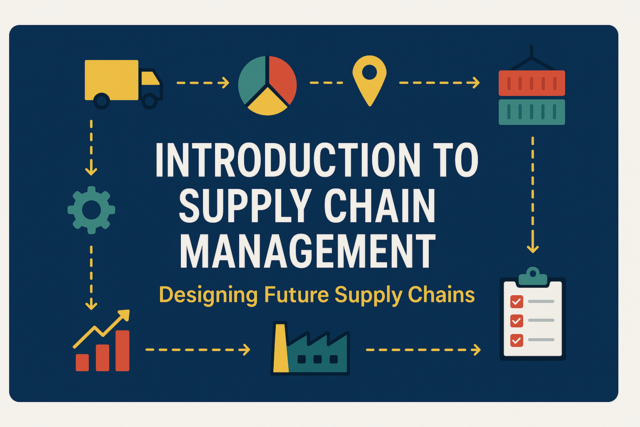 4 hours
0.4 CEUs
Introduction to Supply Chain Management
+ More Info
4 hours
0.4 CEUs
Introduction to Supply Chain Management
+ More Info
-
 7 hours
0.7 CEUs
Designing Interdisciplinary Curricula
+ More Info
7 hours
0.7 CEUs
Designing Interdisciplinary Curricula
+ More Info
-
 3 hours
0.3 CEUs
Developing Technical Writing Skills
+ More Info
3 hours
0.3 CEUs
Developing Technical Writing Skills
+ More Info
-
 3 hours
0.3 CEUs
Preparing Special Education Students for Standardized Tests
+ More Info
3 hours
0.3 CEUs
Preparing Special Education Students for Standardized Tests
+ More Info


